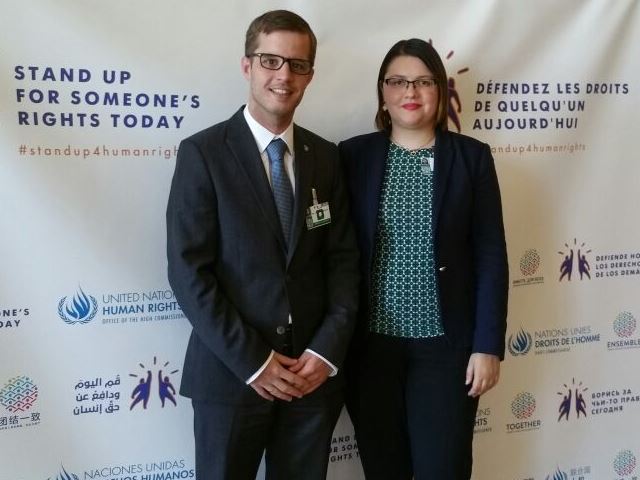GENEVA – St. Maarten was again called to Geneva this month to defend its Human Rights record.
Carol Voges, Head of Economic Affairs and Finance in the Cabinet of the Minister Plenipotentiary in The Hague, represented St. Maarten at the recently concluded 61st Session of the Committee for Economic, Social, and Cultural Rights at the United Nations (UN) Headquarters in Geneva, Switzerland.
In her opening statement, Voges stated that the Government of St. Maarten remains committed to ensuring that all persons, regardless of any distinguishing characteristics, are guaranteed their fundamental human rights. The intervention touched on issues related to labour and unemployment, sexual and reproductive health, and human trafficking. More specifically, matters related to the progress made on decreasing the unemployment rate, which now stands at 6.21% (down from 12.2% in 2009), pension-related issues, the status and legality of abortions, and criminalization of human trafficking and awareness were addressed and followed-up with related questions from the Committee.
St. Maarten received a number of questions regarding the prevalence of domestic and sexual violence and what efforts the government was making to bring about awareness and legal and physiological protection and support to victims. Questions also came regarding the language of instruction, and the status of technology in the curriculum and in the general population.
The St. Maarten delegation, in their concluding remarks to the Committee, promised to continue the work being undertaken, reiterating the point that mainstreaming Human Rights is part and parcel to an inclusive and responsible development agenda.
The International Covenant on Economic, Social, and Cultural Rights (ICESCR), is a multilateral treaty adopted by the United Nations General Assembly on December 16, 1966, and enforced from January 3, 1976. It commits its parties to work toward the granting of economic, social, and cultural rights to all, in particular the Non-Self-Governing and Trust Territories and individuals, including labour rights and the right to health, the right to education, and the right to an adequate standard of living.





























